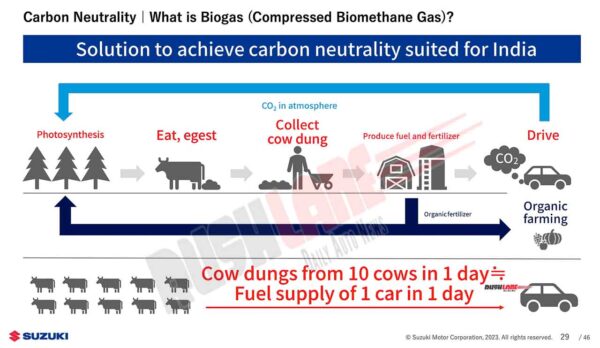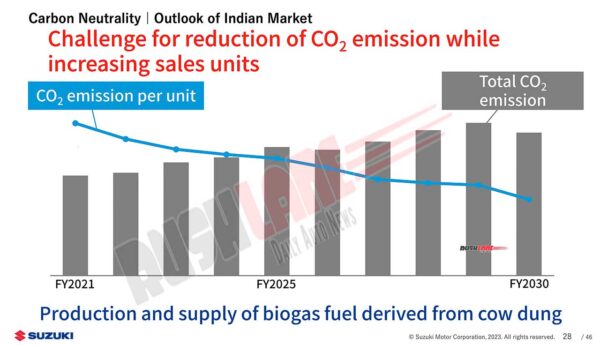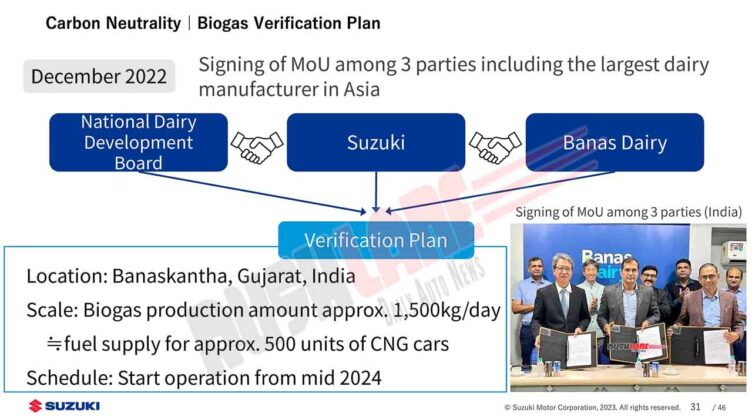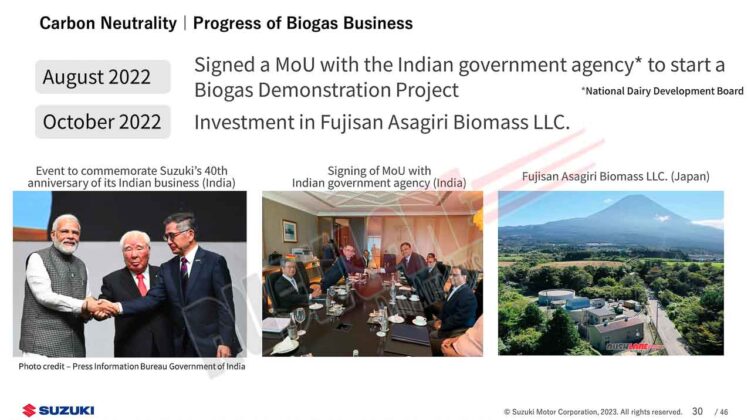Maruti Suzuki is working to reduce its carbon footprint via a multi-pronged approach that includes using cow-dung derived biogas to power cars

Suzuki recently revealed its global roadmap that aims to increase the share of BEVs and HEVs in overall production. For Indian market that is largely ICE-based, the focus will also be on using cleaner fuel options.
While CNG and ethanol are already in use, the next major contributor in reducing carbon emissions will be cow-dung derived biogas. Maruti Suzuki has outlined a detailed plan for production and supply of cow-dung biogas. It will be achieved in partnership with organizations such as National Dairy Development Board and Banas Dairy. Suzuki has also made investment in Japan-based Fujisan Asagiri Biomass that uses cow-dung biogas to generate electricity.
Cow dung from 10 cows in 1 day = fuel for one car for 1 day
Suzuki has estimated that cow dung derived from 10 cows in a day can generate enough compressed biomethane gas to power 1 car for 1 day. With millions of cattle in the country, a significant percentage of car users can benefit from this cleaner fuel. Of course, Suzuki alone cannot be tasked to realize the full potential of cow-dung derived biogas in India. Other OEMs, organizations and dairy companies will have to chip in to make cow-dung biogas one of the mainstream green fuels.
As of now, Suzuki’s cow-dung biogas plans seem more like an experiment. A number of variables, including cost of cow-dung biogas, impact on engine, driving dynamics, etc. will need to be analysed. Suzuki has planned to start production of cow-dung biogas from mid-2024. Their first plant will be coming up in Banaskantha, Gujarat. It will have a production capacity of approx. 1,500 kg per day, which is equal to fuel supply for approx. 500 units of CNG cars.

If cow-dung biogas production and usage is as per targeted goals, it could be implemented on a much larger scale. Suzuki has plans to expand its cow-dung biogas business to other locations such as Africa, ASEAN and Japan.
Cow-dung biogas vs. CNG, ethanol-mix fuels
Cow-dung derived biogas appears to be more sustainable than other green fuels such as CNG and ethanol. It is true that there are huge reserves of CNG and new sources are being regularly discovered. However, it is certain that the world will run out of CNG eventually.
Ethanol is a limitless resource, but one primary issue is that ethanol plants could limit the area of cultivation available for other crops. It may not be happening now, but such a situation can occur when ethanol is more widely used across the globe.
In comparison to CNG and ethanol, cow-dung derived biogas does not seem to have any limitations. Cow egest is agricultural waste and the supply is virtually limitless. After production of biogas, the remaining stuff can be processed into organic fertilizer. The fertilizer will be absorbed by the plants along with the CO2 that cars produce. The entire cycle can continue forever, starting from the cows feeding and egesting.



